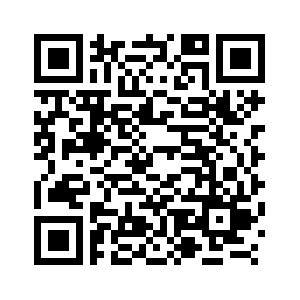Feature: Amid ruins, Yemeni children trace letters of hope
Source: Xinhua
Editor: huaxia
2025-09-13 19:54:30
TAIZ, Yemen, Sept. 13 (Xinhua) -- Under the shade of a nearly leafless tree in Yemen's battered Taiz province, a group of children huddle shoulder to shoulder. They watch intently as their teacher balances a blackened wooden board on a stack of stones.
There are no walls, no desks, no books. Just the board, the dust, the children's voices lifting in unison.
Chalk in hand, Mujib Al-Sabri traces each letter with a care that feels almost ceremonial. His voice is low, steady, a fragile anchor against the chaos that surrounds them. The children repeat after him, earnest and breathless, as if the right syllable spoken at the right time might shield them from what waits outside this circle.
"We have no desks, no books, no supplies," he says. "But I hope these small lessons might spark something-just enough for them to imagine a future."
For more than a decade, Yemen's war has carved deep scars into its classrooms. In Al-Ma'afer district, a school once filled with laughter now serves as a military post, its echoes swallowed by silence. Teachers like Al-Sabri make do under open skies, wages withheld or reduced to near nothing. "For most of the time, we don't get paid. When we do, the money is far from enough," he confides.
The protracted civil war has put a generation's education at risk. According to UNICEF, 4.5 million Yemeni children are out of school -- nearly half the country's school-age population. More than 2,900 schools have been destroyed, damaged, or repurposed for military use, while 7.4 million children require urgent protection services.
Families, too, are confronted with impossible choices: send a child to class, or send them to work so the family might eat. For some, school is no longer even an option.
In Marib, among the clamorous markets, 15-year-old Raheeb Abdo pushes a cart piled with bread. The warm scent of roti, a kind of local bread, clings to him as he weaves through crowds. Once, in Hodeidah, he sat at a desk. Then, gunfire drove his family into a camp. His father disappeared. Now he works from dawn until dusk, carrying a burden he never asked for. "I dropped my books to carry this," he says quietly. "What I sell is just enough to keep us alive."
Yet even amid such desperation, some parents refuse to surrender their children's futures.
Issam Abdullah, who suffers from an untreated illness that prevents him from working, spends nearly every penny of remittances from relatives abroad on his two children's education.
"I cannot bear to see other children go to school while mine stay home," he said. "Even if I have nothing left, I want them to at least learn to read, write, and do math."
Such determination reflects a broader resilience that has kept Yemen's education system from complete collapse. Mohammed Ali Lamlas, undersecretary at the education ministry, said 3 million students remain enrolled in government-controlled areas, with numbers slowly increasing each year.
The ministry has established mobile classrooms and developed alternative curricula, while creating a special department to locate out-of-school children and reintegrate them into the education system.
"Each year we see an increase in enrollment, which is a positive sign of stability," Lamlas said.
But the challenges remain overwhelming in a country where the conflict has created one of the world's worst humanitarian crises. The war, which erupted in late 2014, has split Yemen between government-controlled southern regions and Houthi-held northern areas, including the capital, Sanaa.
International efforts to broker peace have repeatedly stalled, leaving millions of children caught between warring factions and facing threats ranging from child labor and forced marriage to recruitment by armed groups and landmines.
Back in Taiz, Al-Sabri continues his daily ritual beneath the tree. "Every letter I teach them is a step toward their future," Al-Sabri said, as his students practiced writing in notebooks balanced on their knees. "That future may be uncertain, but at least they will face it knowing how to read." ■



